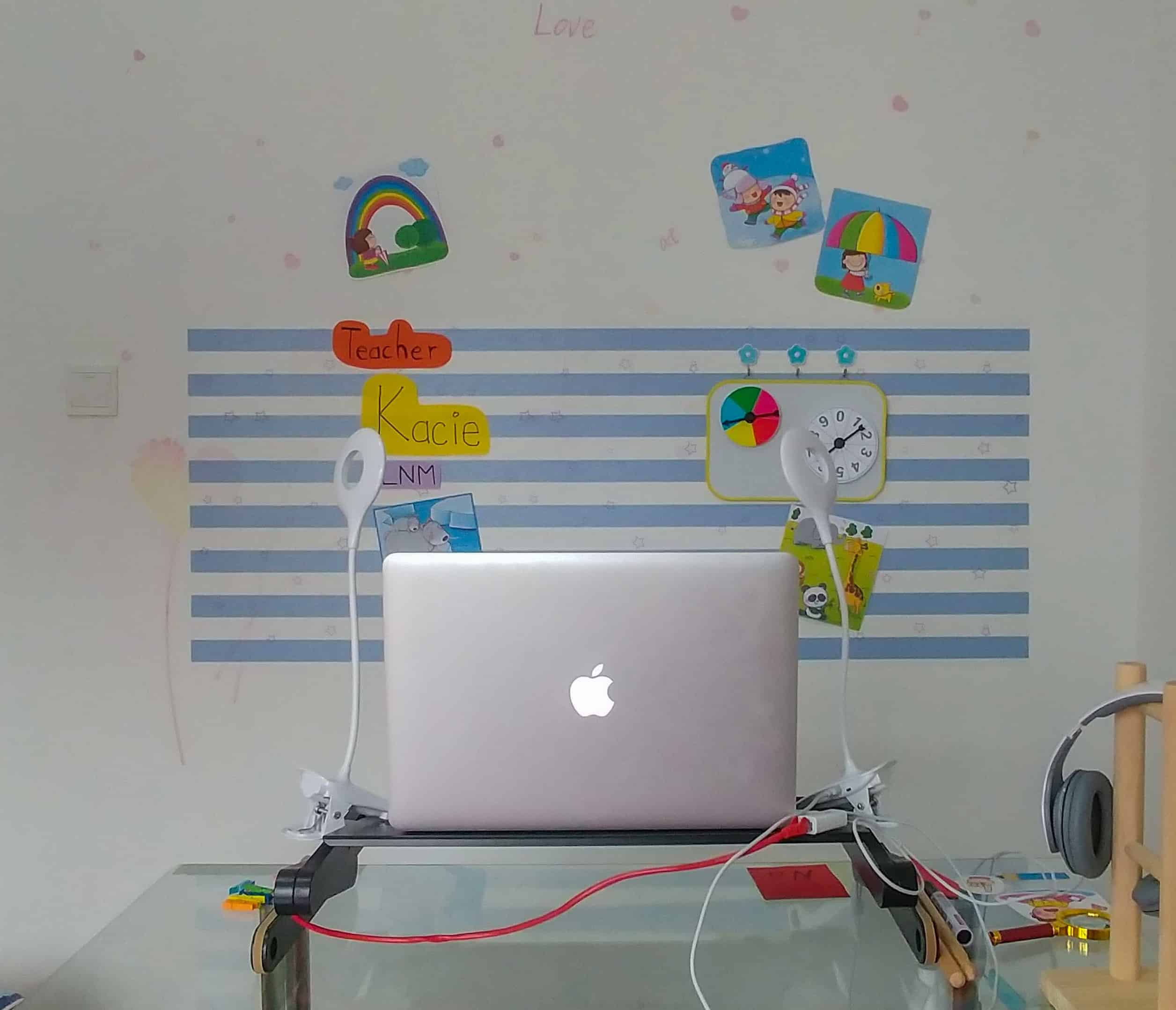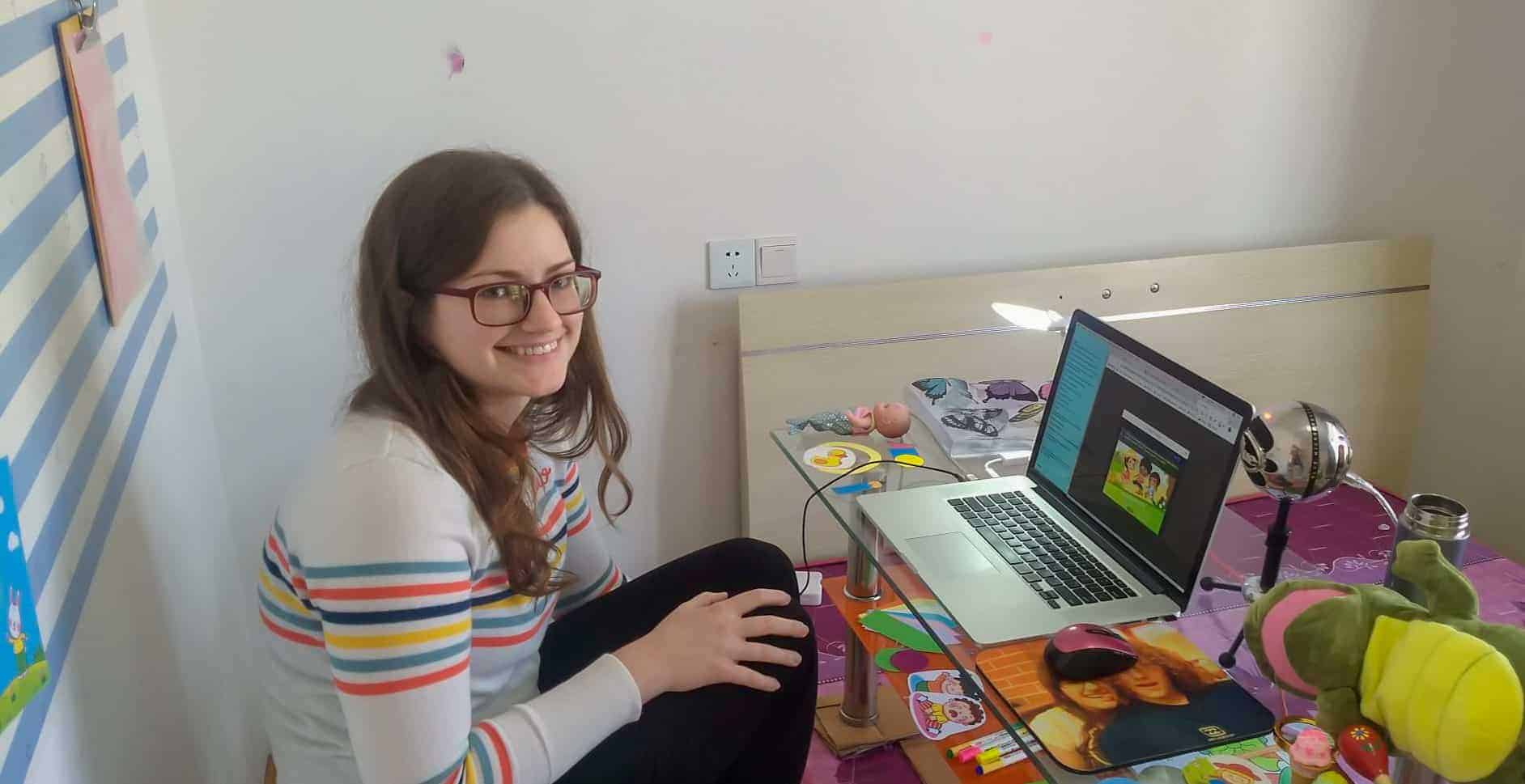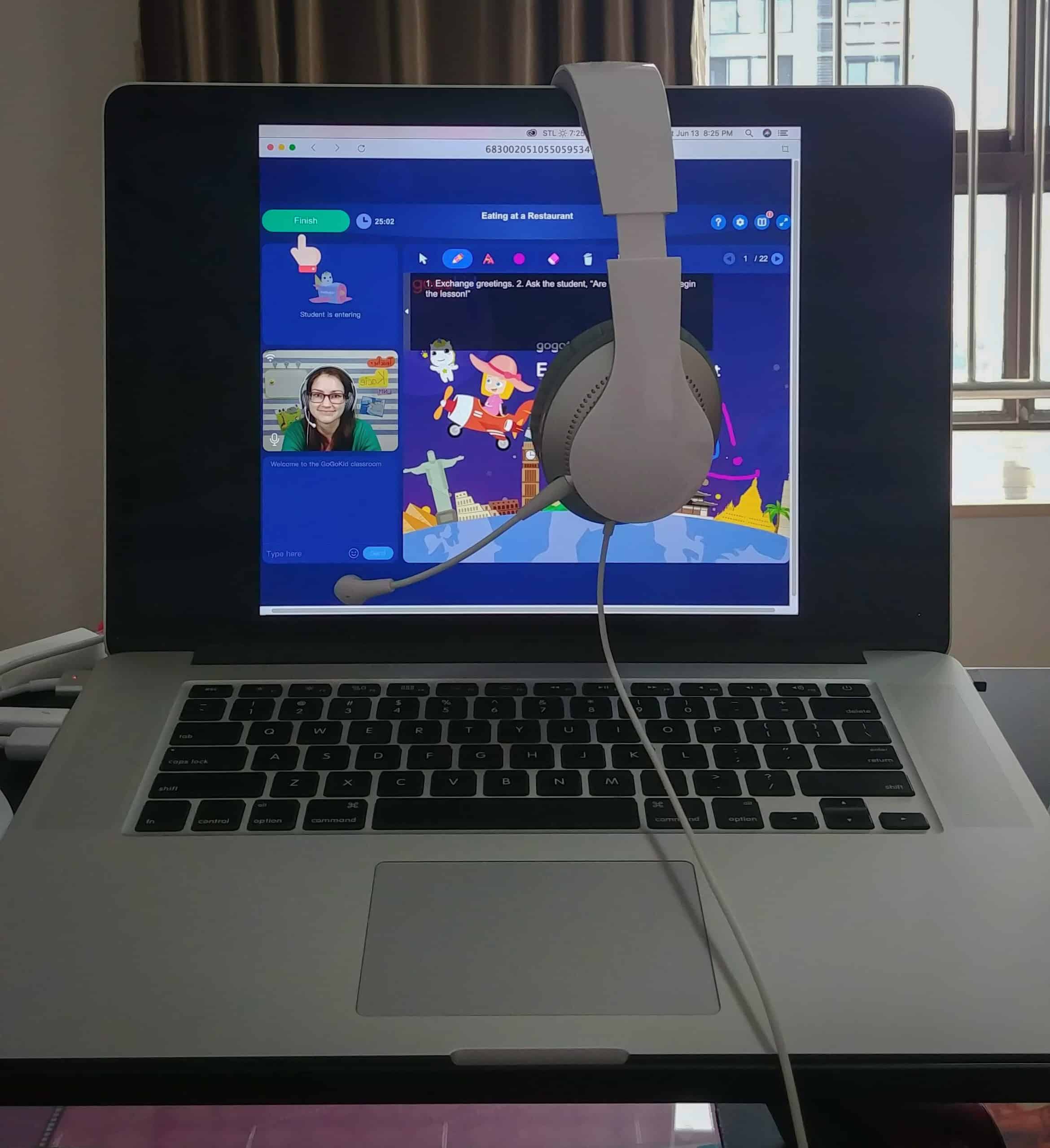Remote jobs are becoming increasingly popular around the globe, especially in light of the COVID-19 pandemic. Teaching English online has become a top choice for many people looking to work remotely, or even from home. Like brick and mortar ESL teaching, most companies require you to be a native English speaker, have a Bachelor’s degree, TEFL certification, and some experience working with children. However, there are so many companies out there now, that you can probably find one to fit you even if you don’t meet all of those tick marks. Your qualifications and experience can directly impact how much money you will make, though. The online classroom has its own set of pros and cons, but there are a lot of people making lucrative careers for themselves as online teachers.
Best things about teaching English online
1. You only need half a wardrobe

Depending on the company you work for, you may only need one shirt! You’re only on camera from the waist up, so go ahead and get comfy in your yoga pants and house shoes. And if you don’t have a lot of regular students, who’s going to know if you’ve worn the same shirt every day? Some teachers even choose to wear the same or similar shirt everyday as a type of uniform to simplify things even more. For others, the company may require you to wear a certain color shirt in class, but as long as you look professional and modest, you’re all set. Wearing bright solid colors is recommended, but it’s not a hard and fast rule. Just avoid anything that’s too wild or distracting.
2. Complete control over your schedule
You have all of the power here! You’re an independent contractor, not an employee. Therefore, the company can’t tell you when to work. They may give incentive bonuses to teachers who work during the peak hours or teach a certain number of classes, but they generally aren’t required. Just be prepared to work a little harder at finding students for parent-booked companies in the beginning. You can work up to your ideal schedule in time. Other companies may require a minimum availability each week, but if that’s a deal breaker for you, just choose another company.
3. Freedom to work from anywhere
Not only can you set your own schedule, but you can choose your own location. Within reason, of course. But if you want to vacation across the country? Go for it! Just plan your activities around your normal class hours, and you’re good to go. No need to get time off approved or take a loss in income. As long as you have a quiet, private space, you can teach. Take a few props to decorate your background, and you’re good to go!
Just note, you do need to be in a hotel or a house in order to teach. You can’t set up in a car or a coffee shop and expect to have good results. Be sure to check the internet speeds of where you’ll be staying before you go, too! You’ll want to make sure you’ll actually be able to teach with a stable connection when you arrive.

4. More individual lessons, and a better student response
Compared to a brick and mortar ESL classroom, you’ll be teaching a much smaller group of students. You’ll either be working 1 on 1 or 1 on 4 with your students. In my experience it’s much easier to connect with and get a better response from your students in an online classroom. Behavior problems aren’t nearly as difficult to deal with and I feel like I can actually teach the student more in a short time, than I do when I’m working with a group of 25 students. Not everyone prefers the online environment, but I found it much easier to manage.
5. No germs!
This is my favorite part of teaching online! Kids are germ sponges. And as someone with a weak immune system, I love that I don’t have to high five 100 dirty little hands everyday! When I first started teaching in China, I was sick for weeks. Also, when there’s a global pandemic, you won’t have to worry about your job being delayed for weeks at a time!
6. Great pay

The pay for teaching online is great! You can make anywhere from $14-30 dollars an hour, depending on your qualifications, experience, the company you work for, and how many hours you actually want to put in. That’s not too bad, especially if you’re from an area where the cost of living is relatively low. For perspective, in the Midwest I was only making about $11.50 (after three years!) at my full time job. I started one online ESL company at $17 (up to $22) and another at $16 (up to $20) an hour. You will have to withhold your own taxes, retirement, and health insurance costs, so be aware of how to handle those issues before tax time comes! Consult with a tax lawyer or an accountant to find out what you need to do in your state.
Worst things about teaching English online
1. You may not be able to make a full time income at first
Every rose has its thorns…. You may not be able to make a full time income off of teaching online. If you do, you may have to juggle working for multiple companies to make enough money to support yourself. It’s doable, but it just takes time to refine your schedule. For parent-booked companies, you’ll probably spend a few months building up your student base and reviews. Your income at these companies will be sporadic at first, but over time, it can become more reliable.
2. The hiring process can be a bit tough

Depending on the competition and demand at the time you apply, you may have a really difficult time landing an interview to get your foot in the door. You may have to do multiple rounds of interviews, demos, and mock classes before you’re offered a contract. Just keep checking back and you’ll eventually get the ball rolling.
3. Cancellations can negatively impact you, a lot
There’s no paid time off in online ESL teaching. Every company is different, but a lot of them have very strict cancellation policies. It can be frustrating to incur penalties and deductions to your income because of cancellations that are generally out of your control. But that’s the nature of online teaching. Generally if you cancel with more notice, the penalties will be less severe than if you cancel last minute. Stay organized and double and triple check your schedule(s).
Some companies also have cancellation forgiveness programs if you can provide documentation for why you had to cancel your class(es). Some of them can actually be pretty lenient, too. It just depends on the company. If this is something you’re worried about, just be sure to read the fine print on cancellations before you sign your contract.
4. Performance review is subjective based off of parents
Most companies give incentives based on parent feedback. These can be quite sizable bonuses, but when it’s totally based on parent opinion, it’s not always reflective of your actual performance. Even if you prepare and practice everything you still may fall short of parent expectations. Sometimes, there’s just nothing you can do about it. It just means you’re not a good fit for that parent and their child. Just shake it off and keep moving. It is frustrating, but hopefully it won’t be too much of an issue in the long run.
5. There’s a learning curve with the online platform

Teaching in an online classroom is much different than a real one. There’s a lot of tools you can use within the classroom and there are several things you have to pay attention to. You’re constantly monitoring the sound and video quality, your student’s response, which tool you have selected, what approach will work best with that student, incorporating your props, and watching that timer to make sure you’re moving through the lesson at an appropriate pace. The bad news is, you’re going to have some glitches as you figure everything out on your online platform. The good news is that it won’t last forever. In a few weeks, you’ll be able to pull it all together seamlessly.
6. Maintaining background, props, and rewards
Some companies have minimum requirements for the teacher’s background, props, and secondary reward systems. For the teachers on the move, that means packing your “classroom” along with you. I think this is the fun part of class, so I tend to go a bit overboard with my decorations and props, but you can be very minimalistic if you really want to. You just have to get creative and find props that can have multiple uses in the classroom.

Teaching online can be a great option for a lot of people. Whether it’s your full time gig or a side hustle, it offers maximum flexibility and requires very little experience (or expense) to get started. The money is great for the work that you actually put in. It’s not right for everyone, but most people really love the life they live because of their online ESL job.
If you have more questions about teaching online, let me know in the comments below or send me an email at kacie@gobeyondtheborders.com. You can read more about my experience teaching online with GoGoKid and QKids if you want to know more about which company might be right for you. Happy teaching!

Please note that some of the links below are affiliate referral links. Using this links won’t cost you any extra (some will even give you a discount!), but we may earn a commission off of them when you make a purchase. These were all services and products that we have used. Please don’t make any purchase if you don’t feel they are right for you, but if you are ready to try these services, and you would like to support our website, this is one of the best ways to do so. If you have any questions about the recommendations, please feel free to email us at contact@gobeyondtheborders.com.

Leave a Reply